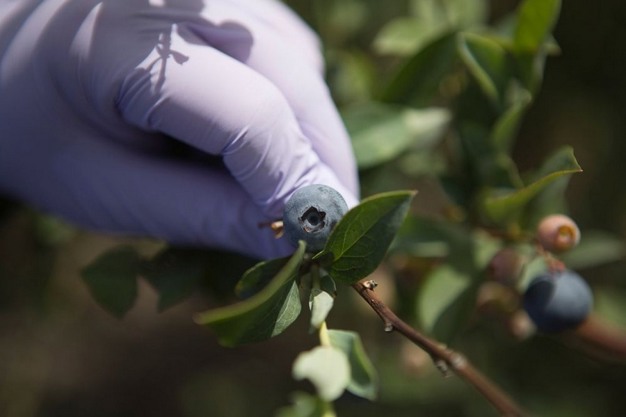Organic fruits and vegetables face a higher risk of spoilage and foodborne pathogens due to stricter production standards limiting chemical additives. To address this, University of Georgia researchers Faith Critzer and Laurel Dunn are studying the use of essential oils to enhance product safety and shelf life as part of a $3.5 million grant from the U.S. Department of Agriculture (USDA).

The collaborative USDA Organic Research and Extension Initiative includes experts from the University of Tennessee, Virginia Tech, Washington State University, and the University of California, Davis. Together, they aim to develop solutions tailored to organic production, which lacks many of the protective tools available in conventional farming.
Critzer, a professor in the Department of Food Science and Technology, emphasized the project's focus on organic-approved methods, testing essential oils such as cinnamon bark, clove, peppermint, rosemary, and thyme on fruits like cantaloupes and blueberries. These oils, compliant with USDA organic standards, are being evaluated for their antimicrobial properties and ability to form coatings that reduce dehydration and spoilage.
"Most crops naturally have a wax coating. We are adding to this to lock in water and extend shelf life while also testing the oils' ability to kill foodborne pathogens," said Critzer. The team is fine-tuning oil concentrations to ensure the coatings are effective yet undetectable when consumed.
The project comes at a time of rising consumer interest in organic products, with U.S. organic food sales reaching $63.8 billion in 2023, according to Statista. The research aims to help the organic produce industry meet growing demand while addressing consumer concerns over food safety following recent outbreaks of foodborne illnesses linked to fresh produce.
"Our goal is to provide the organic produce industry with safe, effective products that protect consumers and instill confidence in the food they eat and serve their families," said Dunn, an associate professor and UGA Cooperative Extension coordinator for food science and technology.
Sustainability is a key aspect of the study. Organic farming often requires more land and resources, leading to criticism of its environmental impact. By extending the shelf life of organic produce, the researchers hope to reduce food waste caused by spoilage.
"A lot of fresh food is wasted because spoilage microorganisms consume it before we can. These coatings could significantly reduce waste by naturally extending shelf life," Dunn explained.
The team's work has the potential to address key challenges in organic farming while supporting market growth and consumer confidence in organic produce.
 For more information:
For more information:
Lillian Sosbee
University of Georgia
Tel: +1 706 5421055
Email: [email protected]
www.newswire.caes.uga.edu










